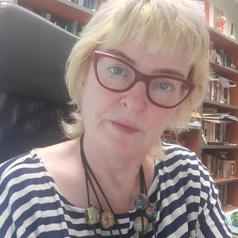
Maureen O'Connor
Lecturer in English, University College Cork
I lecture in the School of English and Digital Humanities in University College Cork. I am an Irish Studies scholar, specializing in women's writing, from the late nineteenth century to today. Much of my work is ecofeminist analysis, including my first book, The Female and the Species: The Animal in Irish Women's Writing.
Less ![]()

Maureen Robinson
Professor, Faculty of Education, Stellenbosch University
Currently teaching in curriculum studies at SU; formerly dean of education at Stellenbosch University and Cape Peninsula University of Technology, academic at University of the Western Cape, and high school teacher.
Less ![]()
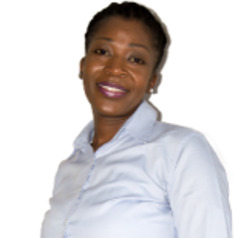
Maureen Bilinga Tendwa
Researcher, Rhodes University
Dr Maureen Bilinga Tendwa is a researcher at Rhodes University, a senior scientific researcher at the Global Health Catalyst and an expert evaluator of Complementary Medicine with the South African Health Product Regulatory Authority. She also serves as a moderator at the University of Johannesburg's Department of Medicine and practices Clinical Phytomedicine. Dr Tendwa focuses on addressing health disparities and promoting sustainable health systems in Africa. She holds a PhD in Bioinformatics with a specialization in Pharmacogenomics in Oncology from Rhodes University, an MSc in Medical BioSciences, and a Post-graduate Certificate in Globalization and Health from the University of Western Cape. Additionally, she has extensive experience as a researcher with the Human Heredity and Health in Africa consortium and is a mediator and arbitrator in medical negligence cases. Dr Tendwa has numerous publications on Afrocentric oncology studies in reputable journals.
Less ![]()
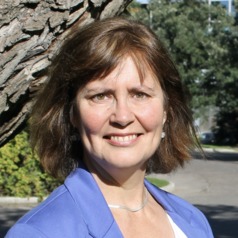
Maureen G. Reed
Distinguished Professor and UNESCO Chair in Biocultural Diversity, Sustainability, Reconciliation and Renewal, University of Saskatchewan
I am Distinguished Professor and UNESCO Chair in Biocultural Diversity, Sustainability, Reconciliation and Renewal at the University of Saskatchewan, Canada. My research, academic service and teaching focus on the social dimensions of sustainability, gender relations and diversity, collaborative environmental governance, and community engagement. I have conducted research about and with UNESCO Biosphere Reserves (called Regions in Canada) since the early 2000s, working with individual sites and with the national network to support capacity building in conservation, sustainable development, and reconciliation. I also work with rural and Indigenous communities to understand and plan for climate hazards. Presently, I'm leading an international partnership to train graduate students working in transdisciplinary sustainability science professional, relational and intercultural skills and competencies necessary to become sustainability change makers.
More details of my research program can be found on my website or via ORCID: https://orcid.org/0000-0002-0860-6395
Less ![]()
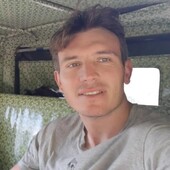
Maurice Hutton
Research Associate, School of Environment, Education and Development, University of Manchester
Less ![]()
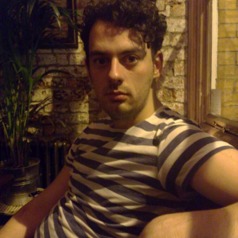
Maurice Nagington
Lecturer in Nursing, University of Manchester
I am an academic with a background in nursing who works at the intersections of health sciences, sociology, and cultural studies. My work addresses issues around death, sex, drugs, HIV and more recently covid-19.
I have an undergraduate degree in Nursing, an MA in Gender, Sexuality and Culture, and a PhD in nursing.
Less ![]()
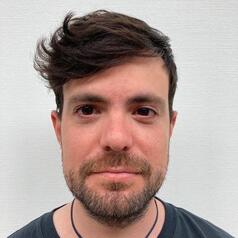
Mauricio Carvallo Aceves
PhD Candidate, Institute for Resources, Environment and Sustainability, University of British Columbia
PhD Candidate at the Institute for Resources, Environment and Sustainability at the University of British Columbia working climate adaptation. Previous experience as a municipal engineer working on drainage masterplans.
Less ![]()

Mauricio Marrone
Associate Professor, Department of Actuarial Studies and Business Analytics, Macquarie University
My research interest is to uncover cutting-edge trends, reveal critical knowledge gaps and connect scholarly communities by creating novel literature-based discovery methods. I have developed a strong interest in creating innovative research methods and have enhanced conventional research methods using text mining and machine learning. In doing so, I act as a boundary spanner between disciplines, research communities, academics and practitioners.
I have received several internal and external awards for my innovative learning and teaching methods.
I am part of the Editorial Board of the Australian Journal of Management. In addition, I have published in top-tier journals such as the European Journal of Information Systems, International Journal of Information Management and Technological Forecasting and Social Change journal.
Less ![]()
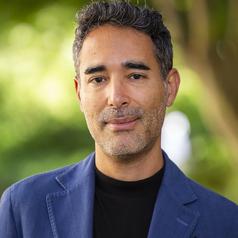
Mauricio A. Garcia-Barrera
Associate Professor of Psychology, University of Victoria
I am a native of Medellin, Colombia. After completing my bachelor’s degree in psychology at the University of Antioquia, I relocated to Georgia (US), where I obtained my Master’s (2005) and PhD (2008) in Psychology (School Psychology/Developmental Neuropsychology emphasis) at the University of Georgia. I am now an Associate Professor in the Department of Psychology at the University of Victoria (BC, Canada), which I joined in 2008. At UVic, I created the CORTEX lab [www.cortex.uvic.ca], a research lab specialized in the study of the neural and behavioural foundations of executive functioning. I am now the Associate Dean Research and Graduate Studies for the Faculty of Social Sciences. I also serve as Associate Editor of the APA journal Psychological Assessment and I am the past President of the Latin American Association of Neuropsychology (2018-2021). My research focuses on the study of executive functioning, our ability to problem-solve, make decisions, and organize cognitive processes towards achieving a goal. I have a particular interest in the psychometric assessment of executive function, but most of my research focuses on clinical events or environmental variables that may modify the lifespan development of this self-regulatory capacity, such as the effects of positive life experiences ranging from sports participation and leadership-based employment to negative experiences such as brain injury (e.g., sports concussions, hypoxic/anoxic brain damage associated with synthetic drug overdose), the experience of war, and the intersections between brain injury, mental health, and addictions.
Less ![]()
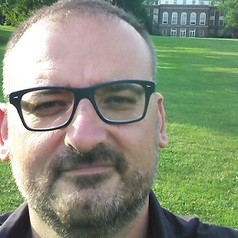
Maurizio Meloni
I am a social theorist working on the historical, conceptual, and political implications of the life sciences. I have held two EU Marie Curie Fellowships, a Fulbright scholarship, and an Annual Membership (2014–2015) at the Institute for Advanced Study, Princeton, USA. I am the author of Political Biology: Science and Social Value in Human Heredity from Eugenics to Epigenetics (Palgrave, 2016)
Less ![]()

Maurizio Porfiri
Professor of Mechanical and Aerospace Engineering and Biomedical Engineering, New York University
Dr. Maurizio Porfiri is an Institute Professor at New York University Tandon School of Engineering, with tenured appointments at the Departments of Mechanical and Aerospace Engineering and Biomedical Engineering, and the Director of the Center for Urban Science and Progress of New York University. He received M.Sc. and Ph.D. degrees in Engineering Mechanics from Virginia Tech, in 2000 and 2006; a “Laurea” in Electrical Engineering (with honors) and a Ph.D. in Theoretical and Applied Mechanics from Sapienza University of Rome and the University of Toulon (dual degree program), in 2001 and 2005, respectively. He has been on the faculty of the Mechanical and Aerospace Engineering Department since 2006, when he founded the Dynamical Systems Laboratory.
Dr. Porfiri is a Fellow of the American Society of Mechanical Engineers (ASME) and the Institute of Electrical and Electronic Engineers (IEEE). He has served in the Editorial Board of ASME Journal of Dynamics systems, Measurements and Control, ASME Journal of Vibrations and Acoustics, Flow: Applications of Fluid Mechanics, IEEE Control Systems Letters, IEEE Transactions on Circuits and Systems I, IEEE Transactions on Network Science and Engineering, Mathematics in Engineering, and Mechatronics. Dr. Porfiri is engaged in conducting and supervising research on complex systems, with applications from mechanics to behavior, public health, and robotics.
He is the author of approximately 400 journal publications, including papers in Nature, Nature Human Behaviour, and Physical Review Letters. He was included in the “Brilliant 10” list of Popular Science in 2010 and his research featured in major media outlets, such as CNN, NPR, Scientific American, and Discovery Channel. Other significant recognitions include National Science Foundation CAREER award; invitations to the Frontiers of Engineering Symposium and the Japan-America Frontiers of Engineering Symposium organized by National Academy of Engineering; invitation to the third and fourth World Laureate Forums; the Outstanding Young Alumnus award by the college of Engineering of Virginia Tech; the ASME Gary Anderson Early Achievement Award; the ASME DSCD Young Investigator Award; the ASME C.D. Mote, Jr. Early Career Award; and the Research Excellence Award from New York University Tandon School of Engineering.
Less ![]()
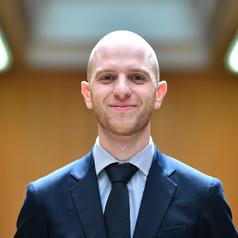
Maurizio Valenti
Senior Lecturer in Sport Management, Manchester Metropolitan University
I am a Senior Lecturer in the Sport Policy Unit at Manchester Metropolitan University.
I serve as the Programme Leader of the BSc Sport Business Management and BSc Sport Marketing Management undergraduate courses.
My main research interests reside around sports economics and sports management. The research I conduct covers various aspects of women’s football, including competitive balance, uncertainty of outcome and countries’ international sporting success. I have collaborated with UEFA and national football associations to help inform their decision-making regarding the long-term sustainability of the women’s game.
Less ![]()
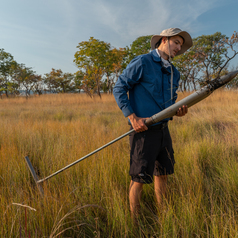
Mauro Lourenco
PhD student, University of the Witwatersrand
I have recently summitted my PhD thesis on "Peat dynamics in the Angolan Highlands" at the University of the Witwatersrand in the school of Geography, Archaeology and Environmental Studies.
I graduated in 2019 with a Master of Science degree at the University of the Witwatersrand.
Less ![]()
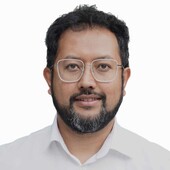
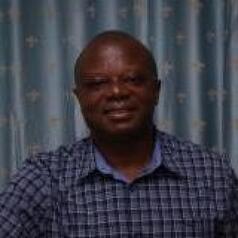
Mawuli Dzodzomenyo
Associate Professor in Infectious Diseases (School of Public Health), University of Ghana
Professor Dzodzomenyo's research focuses on the genetic basis of infectious diseases particularly polymorphisms in genes encoding for molecules and enzymes and their association with severity of diseases with emphasis on malaria and other vector-borne diseases.
He also works on assessing morbidity and mortality due to common parasites such as malaria, schistosomiasis, lymphatic filariasis and other geohelminths in endemic populations in developing countries and the design of appropriate interventions to promote health, with a particular focus on children. Prof Dzodzomenyo's work also includes genotyping using genetic markers to reveal the presence of mutations for assessing resistance to drugs. More recently, his work has also focused on determining occupational health risks among waste handlers and community members with a focus on helminth infections and other bacterial infections in peri-urban environments.
Prof Dzodzomenyo also works currently on climate change adaptation to health issues and assessing health workforce capacity in delivering healthcare in developing countries.
Prof Dzodzomenyo teaches Microbiology, Environmental Health and Sanitation, Global Climate Change and Health Effects, Health Aspects of Housing and Emerging and Re-emerging Diseases of Global Health Significance, among many other courses.
Less ![]()
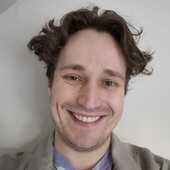
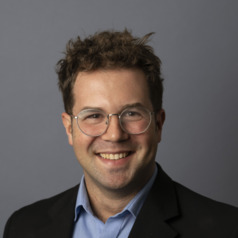
Max Chapnick
Postdoctoral Teaching Associate in English, Northeastern University
Max Chapnick recently defended his dissertation “Wild Science: Radical Politics and Rejected Knowledge in Nineteenth-Century Fiction” at Boston University. Before that he earned a B.S. in Physics, studied creative writing on a Fulbright scholarship, and worked in communications for the non-profit GiveDirectly.
He has taught courses on first-year writing, environmental literature, science fiction, and the political history of Boston.
Less ![]()
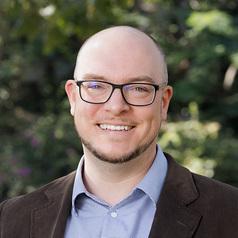
Max Grömping
Senior Lecturer, Griffith University
Max Grömping is a Senior Lecturer at the School of Government and International Relations at Griffith University. He studies how citizens achieve policy change under different political regimes, and the conditions under which citizens gain or lose trust in political institutions. His research is published in scholarly journals such as Political Communication, Governance, Policy Sciences, or PNAS. His book “Lobbying the Autocrat“, co-edited with Jessica C. Teets, is published with University of Michigan Press. Currently, Max co-leads two Australian Research Council-funded Discovery Projects on "Public Interest Advocacy in Australian Policymaking", and on "Mapping & Harnessing Public Mistrust". He is also Associate Editor of the journal Democratization, an invited affiliate of the International Panel on the Information Environment (IPIE), and member of the Electoral Integrity Project‘s International Advisory Board. --- Twitter: @MaxGroemping
Less ![]()
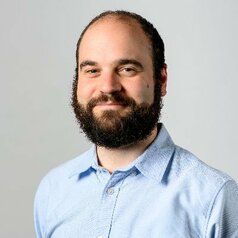
Max Kaiser
Adjunct lecturer, The University of Melbourne
Dr Max Kaiser is the author of Jewish Antifascism and the False Promise of Settler Colonialism (Palgrave, 2022).
His research on Jewish antifascism is also published in Transnational Voices of Australia's Migrant and Minority Press edited by Catherine Dewhirst and Richard Scully (Palgrave 2020), The New Theatre edited by Lisa Milner (Interventions, 2022), Labour History, Fascism. Journal of Comparative Fascist Studies, and the Journal of Modern Jewish Studies.
Other writing has been published in Overland and Jacobin magazines.
Less ![]()

Max Shepherd
Assistant Professor of Mechanical and Industrial Engineering and Physical Therapy and Rehabilitation, Northeastern University
Dr. Shepherd is an Assistant Professor with a joint appointment in Mechanical and Industrial Engineering, and Physical Therapy and Rehabilitation. Prior to coming to Northeastern, Dr. Shepherd did his PhD in Biomedical Engineering at Northwestern University while performing his research at the Shirley Ryan AbilityLab, and was a Postdoctoral researcher at Georgia Tech. He has previously worked at X (formerly Google X) and was a visiting scholar at Ossur, an Icelandic prosthetics manufacturer. Dr. Shepherd’s research seeks to improve the individualized design and control of robotic prosthetics and exoskeletons for people with mobility impairments. His research spans gait biomechanics, machine learning, robotics, mechatronic design, and human motor control and perception.
Less ![]()
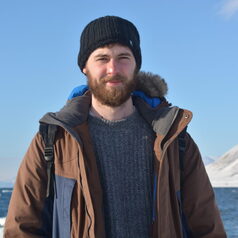
Max Thomas
Senior Research Fellow, University of Otago
My research interests are in the physical and biogeochemical processes in sea-ice and I am part of the aligned modelling project with the Deep South National Science Challenge.
Less ![]()
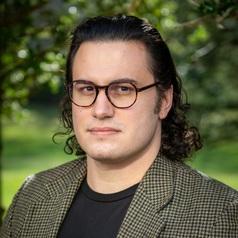
Max Weselowski
Doctoral student, College of Interdisciplinary Studies, Royal Roads University
Max is a student in the Doctorate of Social Sciences program at Royal Roads University. His area of research is on addiction stigma.
Max is also the Executive Director of InnerVisions Recovery Society & Hannah House, a non-profit bed-based treatment service for people seeking help with addictions.
Less ![]()
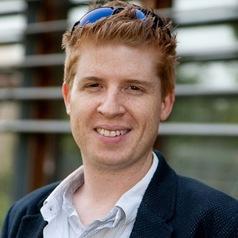
Max L Wilson
Associate Professor of Human-Computer Interaction, University of Nottingham
Max L. Wilson is an Associate Professor of Human-Computer Interaction, in the Mixed Reality Lab, and Director of Student Experience in the School of Computer Science. His EPSRC, European, and Google funded research is focused on the use of fNIRS brain data, about mental workload and other cognitive activity, as a form of personal data, that can be used to evaluate technology and work tasks.
This work has emerged from his earlier research on the evaluation of user interfaces for interacting with information. Max is on the steering committees of both ACM CHI and ACM CHIIR conferences, as well as a member of the SIGCHI Conferences Working Group, and a Deputy Editor at the International Journal of Human-Computer Studies.
Less ![]()

Max William Loomes
Senior Researcher, UNSW Sydney
Max Loomes is a researcher and psychologist based out of Sydney, Australia. He currently conducts research at the University of New South Wales at the School of Psychiatry and Mental Health. Previously he has worked at other academic and medical institutions, such as the School of Psychology and Brain and Mind Centre at the University of Sydney, and St Vincent's Hospital Homeless Health Service. Max has a strong focus on social justice and mental health.
Less ![]()
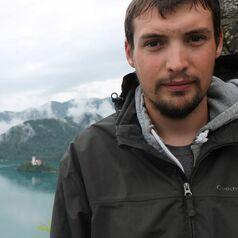
Maxence Soubeyrand
Doctorant en écologie forestière, Université du Québec en Abitibi-Témiscamingue (UQAT)
Je suis doctorant à l'Université du Québec en Abitibi-Témiscamingue à Rouyn-Noranda. J'ai acquis une double compétence en écologie et en modélisation tout au long de mon cursus universitaire. Mes domaines d'expertise incluent l'écologie forestière, la modélisation de la succession forestière et l'analyse de données.
Less ![]()
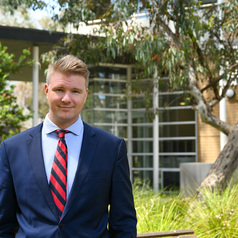
Maxfield Peterson
Postdoctoral Research Fellow, Australian National University
Mas is currently a postdoctoral research fellow at the School of Regulation and Global Governance at Australian National University. Max received his Ph.D in Political Science from the University of Pittsburgh in 2022. His work has been published in The Review of International Political Economy, the SAGE Handbook of Research Methods, Political Studies Review, and is forthcoming in The Handbook of Bureaucratic Autonomy: Politics, Resources, Power. (B. Guy Peters, Ed. Edward Elgar Publishing Ltd.)
Less ![]()
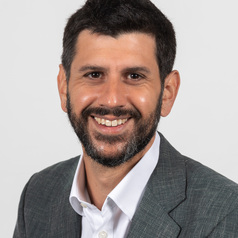
Maxim Bolt
Associate Professor of Development Studies, University of Oxford
Maxim Bolt is also a research associate at the Wits Institute for Social and Economic Research (WISER), University of the Witwatersrand. He is an anthropologist working largely on questions of economy in southern Africa.
Maxim's earlier research was on South Africa’s border with Zimbabwe, between 2006 and 2008, during acute economic and political troubles in Zimbabwe. It focused on the border farms, their black workforces and their white landowners in this context of crisis, upheaval and displacement. The monograph that emerged from this research - Zimbabwe's Migrants and South Africa's Border Farms: The Roots of Impermanence (Cambridge University Press and Wits University Press) - won the 2016 British Sociological Association / BBC Thinking Allowed Ethnography Award.
Maxim now researches property inheritance, the state and class reproduction in Johannesburg, South Africa. In the post-apartheid era, making wills has taken on new significance amidst middle-class expansion and the rapid proliferation of financial services. Meanwhile, most people die intestate, their relatives confronted with unfamiliar rules about which relatives officially matter. The project explores the institutions and disputes surrounding urban inheritance, connecting socio-economic position to kinship, property, and legal and bureaucratic processes. As more South Africans accumulate substantial property, its disbursement becomes a new terrain on which battles of kinship obligation are fought.
Less ![]()
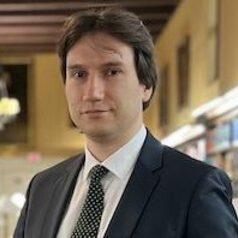
Maxim Krupskiy
Visiting scholar, Russia and Eurasia Program, Tufts University
Maxim Krupskiy, a human rights defender and attorney, joined The Fletcher School of Law and Diplomacy for the Spring 2023 semester as a visiting scholar of the Russia and Eurasia Program. Krupskiy has 12 years of legal experience in Russia. Throughout his legal career, his work has primarily revolved around defending refugees, NGOs, and activists labeled as foreign agents by Russia.
In addition to his work as an attorney, Krupskiy has also prepared over 40 expert opinion briefs on anti-corruption related to migration, state administration, the environment, and legislation in relation to non-profit organizations. Many of these opinions have been utilized by NGOs such as the Human Rights Centre Memorial, Greenpeace, and the World Wildlife Fund, among others. As a current Ph.D. candidate, his research focuses on the role of NGOs and civic activism in establishing social connections that are resistant to challenges arising from modernity.
Less ![]()

Maxime Cornet
Doctorant en sociologie de l'IA, Télécom Paris – Institut Mines-Télécom
Sociologie du travail, Sociologie du numérique, Sociologie de l'IA
Less ![]()
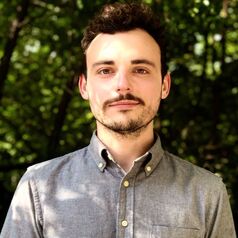
Maxime Gelly-Perbellini
Doctorant en histoire du Moyen Âge, École des Hautes Études en Sciences Sociales (EHESS)
Maxime Gelly-Perbellini est doctorant en histoire médiévale à l'École des Hautes Études en Sciences Sociales (EHESS, Paris) et à l'Université libre de Bruxelles (ULB). Ses recherches portent sur la répression de la sorcellerie dans le royaume de France à la fin du Moyen Age (XIV-XVe siècle). Il a également été attaché temporaire d'enseignement et de recherche à l'Université de Reims Champagne-Ardenne.
Less ![]()
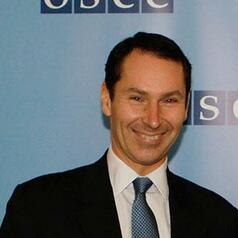
Maxime Lefebvre
Affiliate professor, ESCP Business School
Maxime Lefebvre est diplomate et docteur en science politique. Il est diplômé de l'École des hautes études commerciales de Paris (1989) puis de Sciences Po Paris (1990) et a fait une maîtrise d'histoire à l'Université de Sorbonne Paris IV (1990). Diplomate, ancien ambassadeur, il est actuellement professeur à l’ESCP, et auteur de La politique étrangère européenne (« Que sais-je ? », 2021) et La politique étrangère de la France (« Que sais-je ? », 2019). Les propos des articles publiés sur ce site sont tenus à titre personnel.
Less ![]()
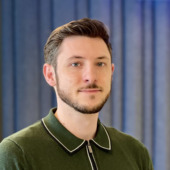
Maxime Massey
Docteur en Sciences de Gestion & Innovation - Chercheur affilié à la Chaire Improbable, ESCP Business School
Less ![]()

Maxime Paré
Professeur chercheur en agriculture nordique, Université du Québec à Chicoutimi (UQAC)
Agriculture nordique; science du sol; écologie du sol
Less ![]()


Maximilian Bruder
PhD Research Fellow, Maastricht Economic and Social Research Institute on Innovation and Technology (UNU-MERIT), United Nations University
I am currently enrolled as a PhD fellow at the United Nations University - MERIT, in Maastricht Netherlands. I research on the subjects of innovation diffusion in poverty context and private sector sustainability.
Less ![]()
- Market Data




















